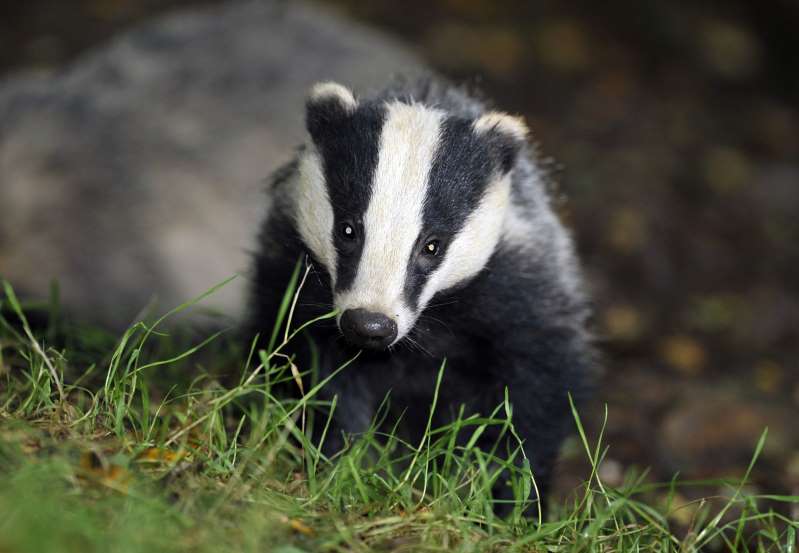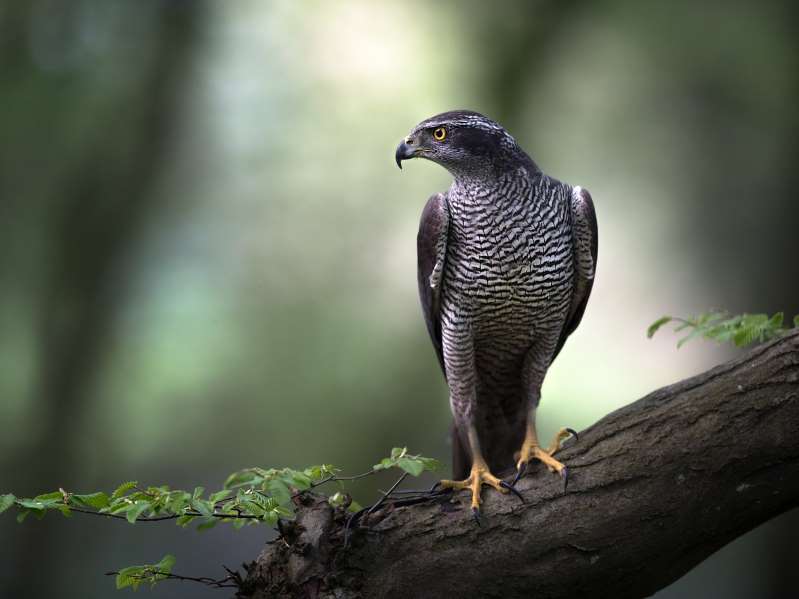Euthanasia Rates For Dogs 'Could Rise By 25% In Lockdown Fallout'





Euthanasia Rates For Dogs 'Could Rise By 25% In Lockdown Fallout'
Euthanasia rates for dogs could increase by up to 25% in the next year as a result of the coronavirus pandemic, an animal welfare charity has warned.
The UK could see as many as 40,000 more stray or abandoned dogs, as families who took on so-called ‘pandemic puppies’ face new difficulties as the country emerges out of lockdown.
The charity Dogs Trust is predicting tens of thousands of dogs could be impacted by the crisis and face behavioural problems, abandonment and be put to sleep.
Pet purchases have surged since the beginning of lockdown, with Google searches for “buy a puppy” increasing by 166%, according to data from Propellernet.
Owen Sharp, chief executive of Dogs Trust, said in the aftermath of the 2008 financial crisis, the number of stray and abandoned dogs went up by 25.6% the following year.
“The 2008 economic crisis was the last time we saw a recession on a level that experts are saying we may see on the back of coronavirus,” he told HuffPost UK. “The number of dogs we took in went up and so did the demand for animal welfare.
“There were different reasons people couldn’t cope with their dogs: some couldn’t afford them, some people might have had to move to different accommodation in order to change jobs, their working hours could have changed. There was a catalogue of issues.”
He warned the number could be even higher this time around. “A 25% [increase in euthanasia rates] could be an underestimation,” he said.
“We don’t know the current dog population – there are a lot more dogs around, particularly puppies – so that number could be a lot bigger.”
A 25% increase in euthanasia rates next year would mean more than 1,800 dogs in local authority shelters could be put down unnecessarily.
Dogs who had been adopted while under lockdown could have a “strong chance” of showing behavioural issues in the coming months – the biggest reason people give up dogs for rehoming.
Animals who have become accustomed to being with the family throughout lockdown could suffer from separation anxiety once people return to work or school, becoming withdrawn, hyperexcited or destructive.
They might also not be as well socialised as people hope and may exhibit behavioural problems once places become more crowded.
There are also concerns over how dogs will react to seeing so many people wearing face masks. “We’ve heard stories about dogs who have become quite anxious about masks,” Sharp said.
His charity has launched an urgent fundraising appeal to help care for dogs who might need rehoming as a result of the crisis. It is also urging people to get in touch if they are struggling to cope with caring for their dog.
“In these extraordinary times we know that circumstances can change in a heartbeat,” Sharp said.
“The sad reality is that in times of financial hardship many people struggle to cope with looking after their pets, and the number of abandoned dogs has gone up. We saw this in 2008, and we’re extremely concerned that history could repeat itself in the coming months.
“We’ve already taken a number of dogs in from owners who have sadly passed away from or been hospitalised with Covid-19. We’re doing everything we can to minimise the impact of this crisis on dog welfare, and would urge anyone needing to give up their dog to please turn to us first, and we’ll do everything we possibly can to help you and your dog.”
Reference: Huffington Post: Léonie Chao-Fong 1 day ago: 27th July 2020
Go-ahead for cattle TB vaccine trials as strategy shifts from badger culls





Go-ahead for cattle TB vaccine trials as strategy shifts from badger culls
Field trials of a cattle vaccine for bovine tuberculosis (TB) have been given the go-ahead as part of moves to phase out badger culling to tackle the disease.
The trials are set to get under way in England and Wales to accelerate deployment of a cattle vaccine for TB by 2025, the Government announced.
It is part of a shift in strategy to phase out intensive culling of badgers, a protected species which can transmit the disease to livestock, and has been made possible by a breakthrough by the Animal and Plant Health Agency (APHA).
Previously it was not possible to vaccinate cattle as tests for the disease could not differentiate between vaccinated animals and those which had bovine TB.
But an effective “Diva” test which can differentiate between infected and vaccinated animals has been developed, and will be tested alongside the BCG vaccine in field trials.

The field trials have been given the green light by the Veterinary Medicines Directorate, and will take place in two phases, with the second dependent on the outcome of the first.
The first will establish the Diva skin test’s specificity – how likely it is to correctly give a negative result for uninfected animals – and its safety in around 300 unvaccinated animals from five TB-free herds in England and Wales.
Phase two will establish the safety of the vaccine and the Diva test in vaccinated cattle and the specificity of the Diva test in around 2,000 cattle, 1,000 of which will be vaccinated and the other half used as a control.
Environment Secretary George Eustice said: “Bovine TB is a slow-moving and insidious disease which can cause considerable trauma for farmers as they suffer the loss of highly prized animals and valued herds.
“This scientific breakthrough is a major step forwards in our battle to see the disease eradicated from this country.
“As wider preventative measures like cattle vaccines are introduced, we will accelerate other elements of our strategy and start to phase out badger culling, as no one wants to continue the cull of a protected species indefinitely.”
UK chief veterinary officer Christine Middlemiss said: “Whilst there is no single way to combat this damaging and complex disease, cattle vaccination is a potential new tool for our multi-pronged approach to tackle it and importantly prevent it, providing vital support to our farming communities.”
Other measures in the new strategy to tackle bovine TB, which leads to the slaughter of 40,000 animals a year, include improving the cattle testing regime and vaccinating more badgers.
A cattle vaccine could spell the beginning of the end of the controversial policy of intensive badger culling, which farmers have said is necessary to control the disease that devastates the beef and dairy industries.
Despite opposition from wildlife and animal welfare groups, which said culling is inhumane and ineffective, the cull has been rolled out to 40 areas of England.
Professor Lord John Krebs, who wrote a key report on badgers and TB in 1997, said that if the vaccine and Diva test are effective it “will be a major breakthrough for TB control”.
“A vaccine would end the need for badger culling,” he said.
Reference: PA MediaBy Emily Beament, PA Environment Correspondent 36 mins ago: 22nd July 2020
Prove nature’s value to protect wildlife and avert pandemics, economists urge





Prove nature’s value to protect wildlife and avert pandemics, economists urge
Boosting businesses that protect nature but also bring benefits to people and governments is the best way to prove the value of conservation in Africa, two of the continent’s leading economic thinkers have said.
The economic value of every acre of land in countries with some of the world’s fastest growing human populations needs to be proven, they say. Quick wins like logging or farming have so far won out over conserving wildlife habitats.
But nature-based businesses can compete against extractive industries if governments and people grasp their economic as well as ecological benefits, according to Fred Swaniker, a Ghanaian entrepreneur and education pioneer, and Clare Akamanzi, the head of the Rwanda Development Board.
That will help protect wildlife species, conserve habitats that provide clean air and water, and keep human development distant from animal species that carry deadly diseases, they said.
The pair took part in the second in a series of webinars hosted by The Independent as part of its Stop The Illegal Wildlife Trade campaign, in partnership with international conservation organisation Space for Giants.
“Poverty in Africa is often so high we can’t do conservation for conservation’s sake,” Mr Swaniker said. “We need to show people how nature benefits them and how it’s the pathway to the prosperity that they need.”
a herd of elephants walking across a dry grass field: image© Provided by The Independent image
Read more
Conservationists warn of poaching pandemic due to coronavirus crisis
His African Leadership University’s campus in Kigali, Rwanda, was dedicated to mentoring a new generation of young Africans aiming to transform conservation into a growth sector.
“As an economic sector this is one that has tremendous unfulfilled potential,” Mr Swaniker said. “As we look at developing Africa we can’t just copy the rest of the world, we have to look at what we as Africans have that is unique to the continent.
One of the things that we have that is a true competitive advantage is nature, some of the unique biodiversity in the world that can therefore really be leveraged for growth.”
Rwanda has transformed itself into one of Africa’s fastest-growing and modernising economies. That growth has in huge part been driven by wildlife tourism, Ms Akamanzi said.
“We look at wildlife as wealth for our nation,” she told the webinar. “We focus on how you translate that into the wealth of the people.
We should never forget communities [that live near wildlife habitat]. They are the immediate custodians that you want on your side. When you involve them, you reduce poaching, and they are very closely interlinked with your objectives.”
Tourism and conservation contribute 7 per cent of Rwanda’s GDP and bring in more foreign business than any other sector, she said. Tourism investors had opened the way for other enterprises to follow.
Key to that success was strong leadership, transparent laws, and making it easy to do business, Ms Akamanzi added.
Reference: Independent: Mike Pflanz 4 days ago: 28th July 2020
Three gamekeepers suspended over suspected killing of rare goshawk on Queen’s land





Three gamekeepers suspended over suspected killing of rare goshawk on Queen’s land
Three gamekeepers working on one of the Queen’s grouse moors were reportedly suspended after being questioned by police over the alleged killing of a rare goshawk through the use of an illegal trap.
The incident in May, on the Goathland estate – part of the Duchy of Lancaster – was caught on camera following a tip-off to activists, and the footage given to the police.
After an appeal for information was put out by police last week, the group Ban Bloodsports on Yorkshire’s Moors have now released the footage.
It appears to show a man putting several jackdaws into a cage trap, apparently as bait.
The camera then captures the moment a goshawk enters the trap, and later a man arrives who “appears to deliberately kill the bird before removing the body in a bag,” North Yorkshire Police said.
The man was seen throwing the body of one of the jackdaws the hawk killed while in the trap into a nearby stream.
The goshawk is one of the UK’s rarest birds of prey with only around 300-400 pairs left, after centuries of persecution which led to the bird being wiped out in the UK by the late 19th century, with numbers only slowly recovering.
Raptors such as goshawks, peregrine falcons, merlins, buzzards and hen harriers have long faced a high risk of persecution on driven grouse moors, as gamekeepers seek to protect stocks of grouse to be shot dead by paying customers. North Yorkshire is one of the worst areas for raptor persecution, according to the RSPB.

A rare goshawk has been trapped and killed by a masked man on the Queen's grouse moor in North Yorkshire.
It is a clear illustration of how deeply ingrained bird of prey persecution is on grouse moors when not even the Queen's wildlife is safe from criminals destroying it. pic.twitter.com/2e0bwWRD4M
July 20, 2020
According to The Yorkshire Post, the head gamekeeper and two underkeepers on the Goathland estate were interviewed under caution by North Yorkshire Police on suspicion of being involved in the goshawk’s death in May.
The newspaper said they voluntarily attended the interviews with their lawyers present.
Last week, North Yorkshire Police Wildlife Crime Officer, Jeremy Walmsley, urged anyone with information to come forward: “The goshawk is one of the most protected species of bird in the UK and it is extremely distressing that an individual would choose to kill any bird of prey. I appeal to anyone with information about this horrific crime to get in touch with the police and help us to find the person responsible for the death of this magnificent bird.”
He added: “We see far too many incidents of birds of prey killed or injured in North Yorkshire and as a police force we are doing all we can to put a stop to this inhumane and callous crime.”
Andy Wilson, chief executive of the North York Moors National Park Authority said: “We are deeply saddened to hear about this incident. Goshawks were persecuted to extinction in the UK in the late 19th century and, despite an improvement in numbers, persecution and habitat loss remain a constant threat to their survival.
“Killing or injuring a bird of prey is illegal, cruel and must be prosecuted wherever possible. We are working alongside the police to support them in their investigations and we would strongly urge any witnesses or anyone who has any information to come forward. With your help the offender(s) can be brought to justice.”
North Yorkshire Police advised that cage traps can be used to catch certain species of birds and are designed to trap birds alive and unharmed, in case of any non-target species becoming caught. Any non-target birds, such as birds of prey, should be released as soon as possible after being caught. Killing a bird of prey is an offence under the Wildlife and Countryside Act 1981.
a fighter jet flying through a cloudy sky: image© Provided by The Independent image
Golden eagle spotted near Balmoral with illegal trap caught on legs
Though the Goathland estate is owned by the Duchy of Lancaster and provides a private income to the Queen, it is leased to a shooting company called W&G LLP, who have appointed Scottish agency BH Sporting to manage the land.
BH Sporting subsequently suspended the three men, after which one resigned, however the other two have been reinstated at Goathland estate, according to The Yorkshire Post.
Luke Steele, spokesperson for Ban Bloodsports on Yorkshire’s Moors, said: “It is a clear illustration of how deeply ingrained bird of prey persecution is on grouse moors when not even the Queen’s wildlife is safe from criminals illegally destroying it to boost game bird populations for shooting.
“Grouse moors continue to be implicated in a salvo of wildlife crimes. How many more birds of prey have to suffer and die before the government introduces regulatory reform of grouse moors to end the wave of wildlife crime?”
In 2018, there were 87 confirmed raptor persecution incidents in the UK, but only one conviction.
In a government study which tracked hen harriers between 2007-2017, 72 per cent of the satellite-tagged birds were killed, or unexpectedly disappeared, on or near grouse moors, according to the RSPB.
“Sadly, many estates see birds of prey as a threat to their stocks of red grouse, which are managed in large numbers to be shot,” the 2018 RSPB report stated.
North Yorkshire Police said no one has been charged and the investigation is ongoing. The force added: “If you have any information which could help this investigation, please call 101 quoting reference: 12200073462 or if you wish to remain anonymous contact Crimestoppers on 0800 555 111.”
Reference: Independent: Harry Cockburn 18 hrs ago: 21st July 2020

 How to resolve AdBlock issue?
How to resolve AdBlock issue?